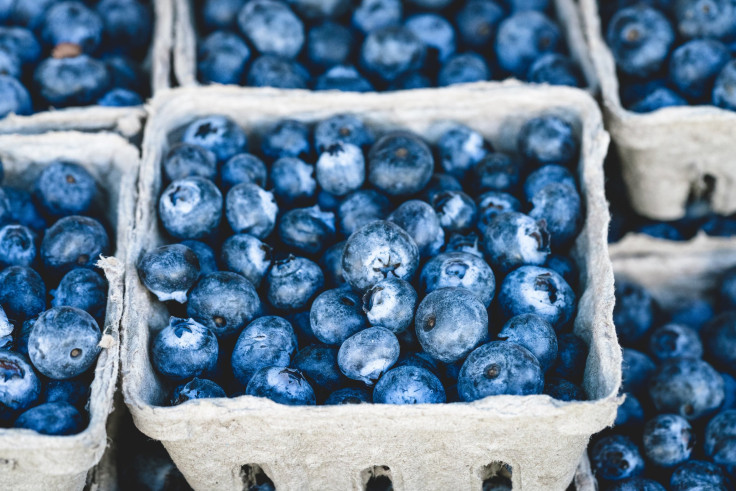Fruits And Veggies May Be The Key To Happiness; Eating 8 Portions A Day Increases Life Satisfaction

We are all aware that eating fruits and vegetables can make us healthier, but what about happier? A new study has found evidence to suggest that increasing one's daily fruit and vegetable consumption can have a direct, positive effect on their overall mood. The team hopes the new findings may be enough to help motivate picky eaters to add more green to their diets.
For the study, now published online in the American Journal of Public Health, researchers from Warwick University in England teamed up with scientists at the University of Queensland in Australia to better understand the psychological effects of eating more fruits and vegetables. The international team followed the food and mood diaries of more than 12,000 randomly selected individuals who had taken part in the Household, Income, and Labour Dynamics in Australia survey in 2007, 2009, and 2013.
The team adjusted the data for issues that could affect life satisfaction, such as changes in income and personal circumstances. As part of the survey, volunteers were asked to document their weekly fruit and vegetable consumption and their overall life satisfaction. Their responses were then compared over the years to see if there was any correlation between diet and life satisfaction. Even with these factors accounted for, results revealed that increased fruit and vegetable consumption was predictive of increased happiness, life satisfaction, and well being. According to the study, people that changed from eating almost no fruit and veg to having eight portions of fruit and veg a day had a life satisfaction increase equivalent to moving from unemployment to employment.
The researchers aren’t quite sure why eating more fruits and vegetables makes people happier, but they suggest it could be related to the antioxidants found in more healthful foods. For example, one study from 2012 found that individuals with higher levels of antioxidants, known as carotenoids, tended to be more optimistic about the future. Carotenoids are the pigments that give certain fruits and vegetables their coloring, and can be found in carrots, cantaloupe, sweet potato, and kale.
Unfortunately, a major flaw in this study lay in the fact that the researchers measured the volunteers’ carotenoid and optimism levels only once. Because of this, the scientists could not conclude whether eating fruit and vegetables makes you more optimistic, or that optimistic people simply eat more fruits and veggies.
In this new study, the volunteers’ diet and mood were tracked over a period of time. Not only was the increase in happiness noticeable, it was also swift. For example, while it could take decades of healthy eating for dieters to reap certain physical effects, such as preventing cancer, the psychological effects were noted only two years after individuals had increased their fruit and vegetable consumption. The researchers believe that these quick results could be enough to help further urge the public to adopt a healthier diet.
“Eating fruit and vegetables apparently boosts our happiness far more quickly than it improves human health,” study co-author Dr. Andrew Oswald said in a recent statement. “People's motivation to eat healthy food is weakened by the fact that physical-health benefits, such as protecting against cancer, accrue decades later. However, well-being improvements from increased consumption of fruit and vegetables are closer to immediate."
However, getting the public to eat more fruits and vegetables is easier said than done. For example, from an evolutionary standpoint, we are more likely to crave “high-calorie” foods such as junk food because this helped to ensure our survival, The Huffington Post reported.
Pair this natural instinct for high-calorie food with the money and effort it takes to cook with fresh produce and it’s clear why so many of us fail to meet the daily quota, around five to nine servings of fruits and veggies. Still, the team hopes that these findings may help motivate us to eat healthier, if not for our physical health, than at least for our mental well being.
Source: Muicic R, Oswald AJ. Evolution of Well-Being and Happiness After Increases in Consumption of Fruit and Vegetables. AJPH. 2016.
Published by Medicaldaily.com



























